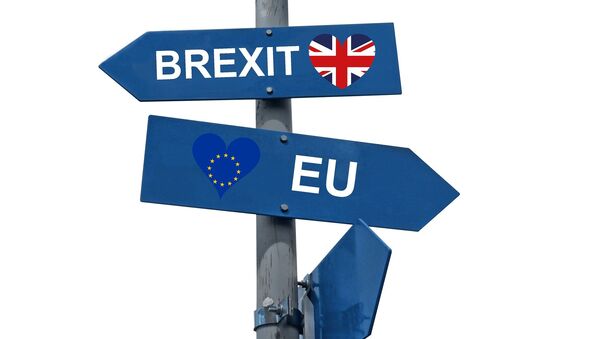Sputnik: What do you make of Christine Lagarde’s assessment that a no deal Brexit would have dire consequences for the UK economy?
Steve Keen: Well I’m not saying it won’t have bad consequences but I wouldn’t be particularly worried about the IMF’s assessment of this because the IMF said there would be an immediate recession when the vote itself was held and nothing happened. The economy comparatively sailed relatively smoothly through the introduction – the uncertainty and drop investment expected didn’t occur. There are clearly going to be more significant effects when there actually are changed tariff rules and changed customs rules in place. But you know, having not seen the financial crisis coming and warned about a crisis which didn’t happen at the time of Brexit, I think you have a reason to take the IMF’s prognosis with a grain of salt.
Steve Keen: I think they’re both focusing on the wrong thing – so I think they can both make wrong statements – as they’re both focused on trade and specialization as the basis of growth. And when you look at the empirical data and when you look at the argument behind free trade as well – they’re trivial compared to the importance of investing properly. The question I’d be really asking and I’m sure the IMF has not asked this – nor for that matter have the people talking about the benefits of a free trade pact on the rest of the world – is what’s going to be the impact of this on the level of investment in the UK. Because that’s really what’s been holding the economy back for the last twenty or thirty years ever since they decided to go with a finance-driven economy rather than an industrial one. Now if whatever happens leads to a rise in investment you’re going to see the economy growing through that process rather than shrinking. But frankly, given the incompetence on both sides of this debate I have no expectations of that actually being the outcome.
Sputnik: Last week Mike Carney warned that house prices could drop by a third given a no deal Brexit? What would you say to this?
Steve Keen: It would be a good thing if it did, but I doubt it! What keeps house prices high is the level of credit in the economy, the amount of money that people borrow in order to buy houses is the fundamental determinate whether house prices rise or fall; and we allowed far too much borrowing to go on by banks creating money for people to gamble on rising house prices. Certainly anybody who lives with an average income in the UK and looks at the average house prices would say ‘there’s something wrong with the second average – or certainly with the first’. So I think again it’s just pulling straws out of the wind rather than understanding what’s going on.
Steve Keen: Yes, absolutely. The UK has become de-industralized in the last thirty years – that’s been the impact of focusing on the finance sector. It’s running a large trade deficit which I see as a damaging thing which can only be reversed by either devaluing the pound dramatically or by investing in manufacturing or both. And that’s a long, drawn-out process which takes quite a bit of thought, and you have to develop the infrastructure of the country to enable that to happen as well, you’ve got to invest in it and run a government deficit to finance that. So these are things that should be spoken about, but all you read about is Brexit, Brexit Brexit!
The views expressed in this article are those of the speaker, and do not necessarily reflect those of Sputnik.





